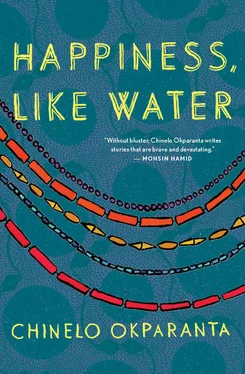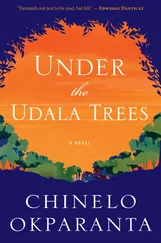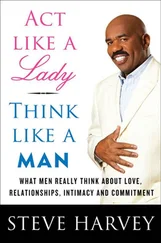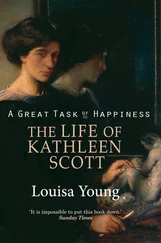A little later that evening, the area around her left eye starts to grow darker. Mostly, this is what I remember when I think of Massachusetts.
The next few days, I can’t stop thinking of Mama’s voice on the phone, telling me she needs all the help she can get. I can’t walk down the hallways of Allen High School, I can’t eat dinner, without hearing her voice, pleading for me to come home. A week later, I make the decision.
School has not yet let out for the summer, so I take an emergency leave of absence, and a substitute teacher takes over for me.
They don’t live in Boston any more. They are now in New Jersey, because Papa found himself a better-paying job there with Bristol-Myers Squibb. Before that he worked for several different pharmaceutical companies, the first of which was the reason we were able to remain in the States. That first one had been willing to sponsor him for permanent residency, which made it so that we could legally stay.
In any case, prior to his falling sick, he worked for the manufacturing engineering sector of Bristol-Myers. Mama said he helped to produce medications to treat everything from arthritis to cardiovascular disease, from cancer to psychiatric disorders. As I pack my bags, I find myself wondering if he manufactured the medications that will be used to treat him now.
They live a couple of hours’ drive from me, US-22E to PA-33S all the way to I-287S and then to Route 1. When I finally arrive, I park my car in front of the house, and I breathe. It is the first time in years, about ten years now, that I am allowed to come home.
She has left the key for me underneath the doormat. When I bend down to retrieve it, I recognize the doormat, the same one from nearly a decade ago. But it’s still looking brand new, not fraying at the edges at all. I wonder how often doormats are replaced. I wonder if they have just gotten into the habit of replacing it with the exact same type. I wonder if maybe there is just no-one stepping on the mat, perhaps it is always just the two of them, never any guests, never any extra footsteps.
The house is a bi-level. I climb up the staircase. The living room is at the top of the staircase, to the left. To the left of that is the doorway to their bedroom. The door is pulled closed, and though I know that he’s not in there, that he is in some room in Saint Peter’s Hospital, probably wearing one of those pale blue gowns whose open back is only drawn together by a pair of thin strings, though I know that he is quite a distance away, prepping for thyroid surgery, I feel the muscles of my stomach tighten.
I head for my old room. I turn the knob and stare for a bit. On my old dresser are two rows of stuffed animals: purple baby Dumbo with his large, drooping ears; yellow ducks in a line, some ripped at the seams, others with deep red, almost brown blotches — dried blood — marking their bodies: old consequences of Papa’s rage; little Sacagawea with her long braids and her peeling, dangling eyelashes. I shake the dust off them. I watch the dust particles scatter in the air. Then I run my hand across the back of one of the ducks and pick it up. It’s been years since I picked any of them up, years since I talked to them, hushed, in the dark, staining them with tears, telling them my list of things I’d take with me when I turned eighteen and left. When I put the duck back down, back with the group, I imagine that they begin again to talk amongst themselves, like we used to when I was one of them. Only, now I am a stranger. I don’t talk to them, and I barely listen.
The bed is made with pale yellow sheets that I do not recognize, but my old comforter is folded at the foot, as if it has been waiting there these ten years, anticipating my return.
I sit on the bed, close my eyes for a moment. I breathe in, inhale the musty, stale air, and then I open up my eyes and look in the direction of the window. The curtains are pulled open, and the sunlight enters. I can see its rays, a light-yellowish diagonal line from the windows down to the floor, with dust particles like minuscule butterflies floating in it. On the area of the carpet where the light lands, the curtain’s embroidered leaves appear to float too, drifting shadows on the rug. I stare at the drifting leaves, allow myself to be hypnotized by them, but it’s a melancholic sort of hypnosis, the kind where you find yourself reliving all the things you wish you never had to live at all.
They had an argument my senior year in high school. One of the serious ones. I got in the middle of it, screamed, told him what a horrible father he was. Pushed him away from her. What kind of husband beats his wife? I asked.
Suddenly his hand was coming down hard on my face, his tight fist landing right smack on my mouth.
We still don’t know who called the police, and we certainly did not hear them knock, if at all they knocked. One moment, Papa’s hand is coming down on my face, the next moment a couple of officers in dark uniforms with guns and badges are appearing in the doorway of Mama and Papa’s bedroom, which is where we were at the time.
So, the officers arrive, and for a time both of them stay with us in the house, asking questions, taking notes. Then one of them tells Mama and me to follow him. He leads us outside.
I sit on the hood of Papa’s Ford Taurus. The tears dry on my face, and the skin on my cheeks feels stiff, as if all the moisture in it has dried away with the tears. There is a cool breeze, and I turn my face into it and right into the scrutinizing gaze of the officer.
‘Your lips are bleeding,’ the officer says, staring at me. ‘You’ll have to tell me who did it to you.’
I touch my lips. The blood is caked, congealed by the air. It feels bumpy like a scab.
‘You’ll have to tell me who did it to you,’ the officer says again.
From the corner of my eye, I see Mama blinking purposefully and shaking her head at me. ‘What will happen if I tell you?’ I ask the officer, picking at the congealed blood, wiping it away with the sleeve of my shirt.
‘It’s a crime,’ the officer says. ‘The person responsible will be arrested and put in jail.’
Mama blinks some more.
‘Don’t worry,’ the officer says. ‘A little jail time will teach him a lesson. He’ll know better than to do it again.’
‘Your father is diabetic,’ Mama bursts out then. ‘Do you want to be the one to send a diabetic man to jail? What will happen to him there? Do you want to be responsible for destroying his health?’
‘Ma’am,’ the officer says.
‘I fell,’ I say. ‘It’s my fault. I fell on my face.’
The officer stares at me hard, jots down some notes. Before long he and his partner are inside their police cruiser, backing out of the driveway.
The next day, period four, Mrs Beatty’s calculus class, the intercom goes off, and I hear my name. ‘Uchenna Okoli, please report to Mr Loftin’s office.’
Mr Loftin is the guidance counsellor, and in his office, he pulls out the local newspaper, turns to the last few pages of it, asks me if everything is okay at home.
I tell him yes.
He looks at me as if he is inspecting me, as if I am an experiment and he’s watching to write a report.
He says, ‘I don’t know any other family by the name of Okoli in the entire of Edison Township. As a matter of fact, I don’t know any other Okolis at all.’
I nod. ‘It’s a rare name,’ I say. I try to chuckle, but it comes out like a cough. I put my right arm on the armrest and act like I’m merely relaxing into the chair. Then I lean my head on my hand and cover a good portion of my lips that way.
He nods. ‘Your family was cited for an incident of domestic violence,’ he says. ‘You’re the only Okoli family I could find in Edison.’
Читать дальше












